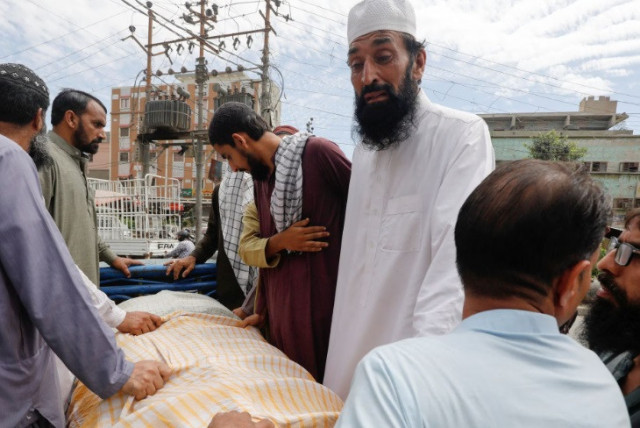Deadly chaos as Pakistanis scramble for scarce donations
This year, economic malaise seems to be eroding society's ability to cope

Seven-year-old Saad Umer joined a crowd in a poor neighbourhood in Karachi rushing to get a handout of flour and a little cash from a charity trying to help the most vulnerable cope with runaway prices.
But in the surge, a melee broke out and some people fell.
Saad and 10 others, all women and children, were killed in the latest in a series of deadly scrambles for food as Pakistan struggles with its most serious economic crisis in years.
"He was a beautiful kid. I'll never get over his death as long as I live," his father, Umer Zada, told Reuters.
Zada said the distribution of aid should have been better organised, with police supervision of the hungry and desperate seeking help.
"There were no rules or regulations as my son got trampled."
Last week, in another incident, police fired tear gas in a bid to control a frenzied crowd trying to get their hands on food supplies at a site in Kyber Pakhtunkhwa province.
In all, 16 people have been killed in chaos at charity distributions, shocking Pakistan, especially during the fasting month of Ramazan, a time for giving and spiritual reflection.
But this year, economic malaise seems to be eroding society's ability to cope.
Global factors have compounded consumer inflation as the country of 220 million people tries to finalise a bail-out agreement with the International Monetary Fund.
Prices have been pushed higher by a weakening currency, energy tariff increases and a usual Ramazan spike.
Pakistan's inflation soared to a record 35% last month. Food inflation in March was at 47.1% and 50.2% for urban and rural areas respectively.
The turmoil as charities try to help the poorest lays bare the desperation that is likely to get worse as the impact of inflation is compounded by smaller donations of the traditional zakat alms for the poor, according to five aid groups that Reuters spoke to.
"People that would donate small amounts are now showing up asking for help while people that used to donate large amounts are saying they're struggling and scaling back," Ansar Burney, head of the Ansar Burney Trust told Reuters.
"There has been a 50% reduction in donations this year, while there has been a 50% increase in people seeking help."
'Donor fatigue'
With prices rising, the funds that donors are giving are not stretching as far as they did.
"Charities are struggling to deal with rising inflation and costs the same way households are. There has also been a rise in the number of people heading our way for help," said Ramzan Chhipa, founder of the Chhipa welfare association.
Higher fuel prices make providing an ambulance service ever more difficult, says Faisal Edhi, a philanthropist and chief of Pakistan's largest charity operation the Edhi Foundation. The group's ambulances took away the injured and the bodies of Saad and the others killed in the Karachi crush.
"Our services are becoming costly and we aren't always able to reach the people ... We've already spent a substantial amount from our reserves,” Edhi said.
Edhi said there had also been an increasing number of men committing suicide because they could not support their families, including one man who was a friend of his.
The Saylani Welfare Trust runs soup kitchens in Karachi's poorest neighbourhoods where surging numbers of people are hoping for a meal but donations to fund the service are falling.
Trustee Arif Lakhani said where in the past up to 500 people would turn up, now it is up to 1,000 while donations have fallen by about half.
"In fact, I'd say donations are 40% of what they were," he said.
Sikander Bizenjo, co-founder of the Balochistan Youth Action Committee, which helps out in the remotest villages, said after a year in which floods devastated huge areas, it was not surprising people felt they could not help as much as before.
"There is some form of donor fatigue," he said.
Like everyone, Zada is struggling with inflation but he also has to contend with grief and questions that torment him.
"I'm totally devastated. There are other people like me whose children were killed, martyred," he said.
"The women who had nothing to eat went there. Can’t the government see that people are dying of hunger?”



1725254039-0/Untitled-design-(24)1725254039-0-208x130.webp)















COMMENTS
Comments are moderated and generally will be posted if they are on-topic and not abusive.
For more information, please see our Comments FAQ